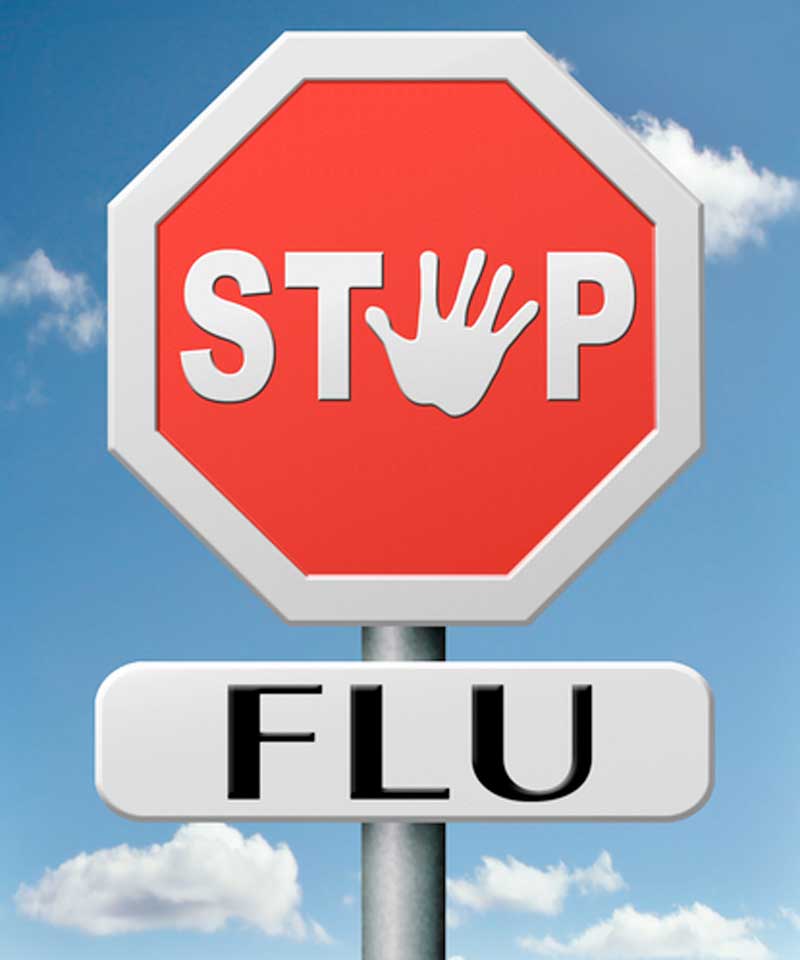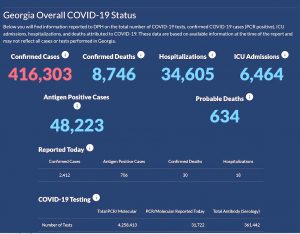The Georgia Department of Public Health (DPH) has confirmed 51 flu-associated deaths statewide as of Jan. 27. DPH is advising that no appointment is needed to receive a flu shot at district health department offices.
“If you have not gotten a flu shot yet, do not wait any longer,” said DPH spokesperson Hayla Folden. “Flu is widespread in Georgia.”
Folden said that, as of Jan. 27, there have been 51 confirmed flu-associated deaths statewide and 1,027 flu-associated hospitalizations in the 8-county metro Atlanta. That area does not include Fayette and Coweta counties.
The Fayette County Health Department is located at 140 Stonewall Avenue, Suite 107, in Fayetteville.
The Coweta County Health Department is at 70 Hospital Road in Newnan.
Folden said the predominant strain of flu circulating in Georgia and around the country is influenza A (H3N2). This strain can be particularly hard on the very young, people over age 65, or those with existing medical conditions. H3N2 is one of the strains contained in this year’s flu vaccine along with two or three others, depending on the vaccine, she said.
Flu symptoms and their intensity can vary from person to person, and can include fever, cough, sore throat, runny or stuffy nose, body aches, headache, chills and fatigue. If you think you have the flu, call or visit your doctor, Folden advised.
“In some cases, healthcare providers may recommend the use of antivirals such as Tamiflu or Relenza. Antiviral drugs are prescription medicines (pills, liquid, an inhaled powder or an intravenous solution) that fight against the flu in your body,” said Folden. “Antiviral drugs work best for treatment when they are started within two days of getting sick. Antivirals are used to treat those at high-risk for flu complications – young children, the elderly, individuals with underlying medical conditions and women who are pregnant. Most otherwise-healthy people who get the flu, however, do not need to be treated with antiviral drugs.”
There are other things you can do to help prevent the spread of flu –
• Frequent and thorough hand-washing with soap and warm water.
Alcohol based gels are the next best thing if you don’t have access
to soap and water.• Cover your nose and mouth when coughing and sneezing to help prevent the spread of the flu. Use a tissue or cough or sneeze into the crook of your elbow or arm.
• Avoid touching your face as flu germs can get into the body through mucus membranes of the nose, mouth and eyes.
• If you are sick, stay home from school or work. Flu sufferers should be free of a fever, without the use of a fever reducer, for at least 24 hours before returning to school or work.
If you are caring for a sick individual at home, keep them away from common areas of the house and other people as much as possible. If you have more than one bathroom, have the sick person use one and well people use the other. Clean the sick room and the bathroom once a day with household disinfectant. Thoroughly clean linens, eating utensils, and dishes used by the sick person before reusing, Folden said.
To learn more about influenza log on to www.flu.gov.











Leave a Comment
You must be logged in to post a comment.